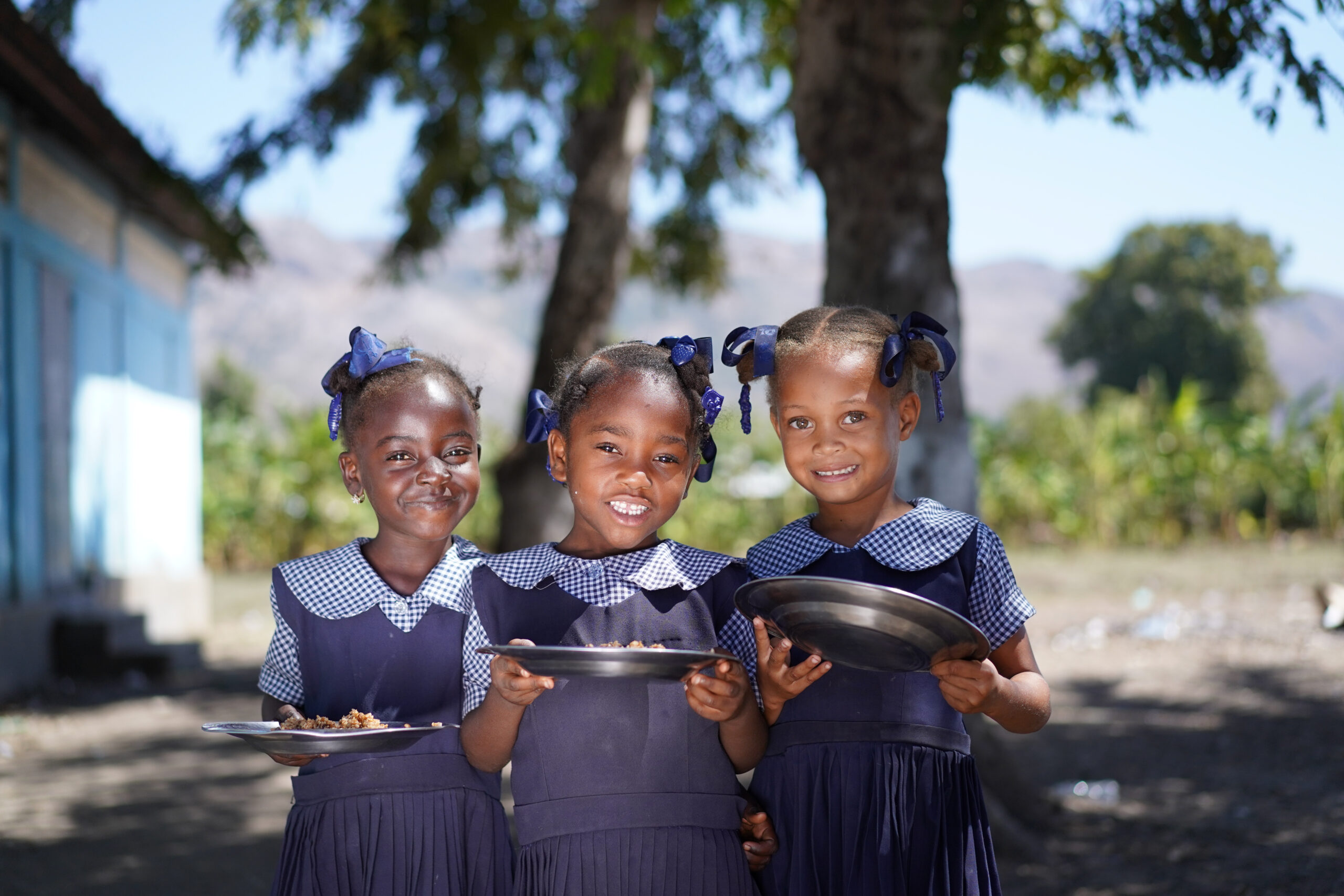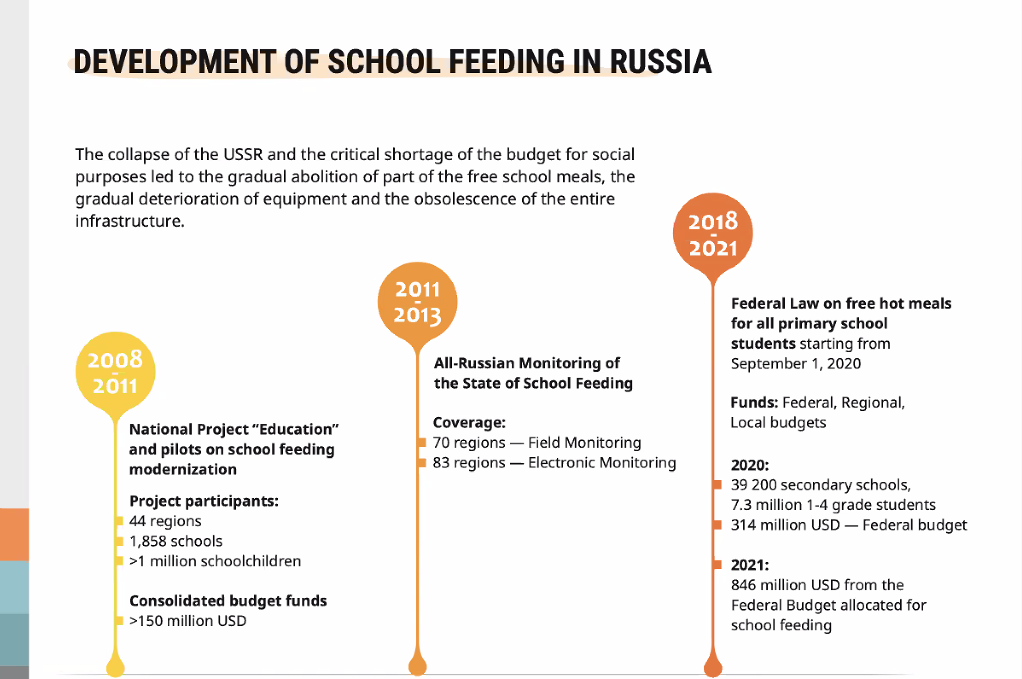
On Thursday, 27th May, an event marked the launch of the Global Research Consortium for School Health and Nutrition, a 10-year collaboration of academic, research and development partners that will address and share strategic research for evidence-based decision-making on school health and nutrition. The event, hosted by the London School of Tropical Hygiene & Medicine, in partnership with the World Food Programme (WFP) and Dubai Cares, highlighted the economic and social impacts of school health and nutrition programmes, particularly in creating human capital, and the importance of investing in programmes backed by academic evidence.
Daniel Balaban, Director of the WFP Centre of Excellence against Hunger Brazil, spoke at the opening panel on research priorities from a programming perspective and shared some school feeding experiences developed in Brazil. Also part of the panel was Zhao Chen, from the China Development Research Foundation, and Vladimir Chernigov, Director of the Russian Social & Industrial Foodservice Institute (SIFI). In his intervention, Daniel Balaban talked about the Brazilian school feeding programme, the South-South Cooperation efforts carried out by the WFP Centre of Excellence and his experience as a former President of the National Fund for Education Development, which is the institution within the Ministry of Education that runs and implements the Brazilian National School feeding Programme, known as PNAE.
He described the main characteristics of PNAE, which covers all primary education schools in the country, supporting over 40 million children. “PNAE became a global reference in school feeding for many reasons: the programme is a fully national initiative, run and funded by the government; it is universal, reaching all children in public education in Brazil; it covers at least 30% of children’s daily nutritional needs; and, most notably, PNAE was a pioneer in promoting purchases from smallholder farmers”, said Daniel Balaban. He also highlighted that PNAE relies heavily on evidence and data, with the use of tools such as mobile apps and local school feeding and nutrition centres. “When we produce data that shows the positive results that school health and nutrition programmes can yield, we are better equipped to advocate for these programmes’ implementation and increased investment worldwide”, he said.

He also highlighted the role of the WFP Centres of Excellence, particularly the one in Brazil, in using South-South Cooperation to showcase positive experiences in school health and nutrition programmes, such as the Brazilian example. “We work to convince governments and partners that school feeding is a crucial investment and we do so by showing evidence of what we are saying”, he said. The WFP Centre of Excellence in Brazil has closely followed the process of a growing importance of school feeding, especially in Africa, where 39 countries were already implementing school feeding programmes managed and financed by governments. “We are very grateful to have supported the enhancement of school feeding programmes in countries such as Benin, Kenya, Gambia, Côte d’Ivoire, Mozambique and Burundi – always backed by data on the Brazilian national programme”, he said.
When discussing the role of the newly launched Global Research Consortium for School Health and Nutrition, Daniel Balaban highlighted the need to collect and validate school feeding data in each country. “This is not an easy task, but it is the right path so we can build strategies that support countries in implementing local school feeding projects”. Zhao Chen, from China, also highlighted the importance of data collection withing schools to monitor food procurement, consumption and waste, and also to follow children’s development. Vladimir Chernigov, from Russia, also suggested an approach based on modern technology and green energy.
The event also included other panels on health and nutrition outcomes in school-aged children and adolescents; the relationship between health, nutrition and educational achievements; the multi-sectoral impact of school health and nutrition programmes using cost-benefit analysis; and how better data could contribute to more coordinated and efficient support for the health, nutrition and education of school-aged children.
About the Global Research Consortium for School Health and Nutrition
There is a growing Global Coalition to help countries re-establish, increase, and improve school health and nutrition programmes, the health and well-being of all children, provide a safety net for a generation, create human capital, support national growth, and promote economic development. Within and informing the Coalition is the Global Research Consortium for School Health and Nutrition – a 10-year collaboration of academic, research and development partners that will address and share strategic research for evidence-based decision-making on school health and nutrition.
Together with its partners, the Research Consortium will develop a 10-year independent research strategy on school health and nutrition. The research agenda will aim to: provide evidence on the effectiveness of school feeding programmes for learning, social and physical outcomes of children and youth across the world, making the case for investment in school-based health and nutrition programmes; and to provide policymakers with programmatic guidance on the optimal policies to be implemented with regard to health, nutrition and education.




